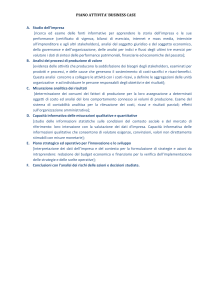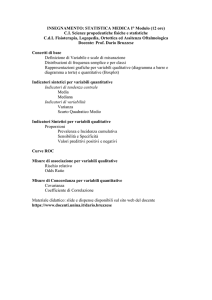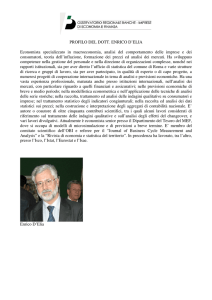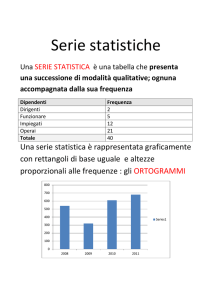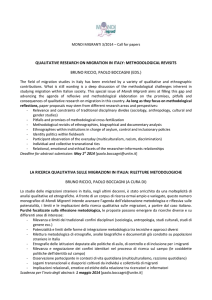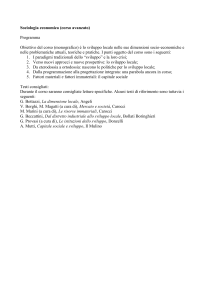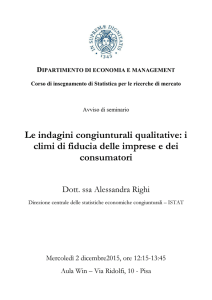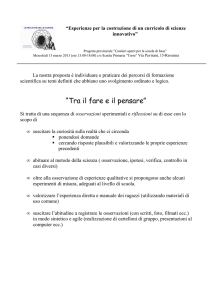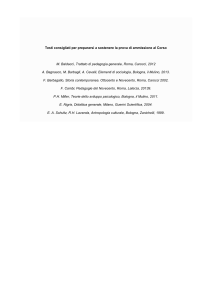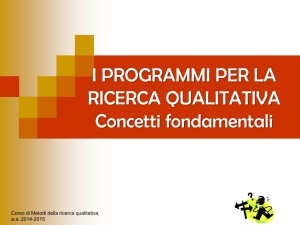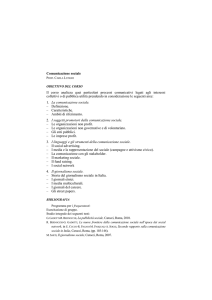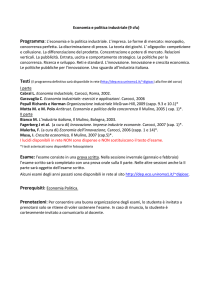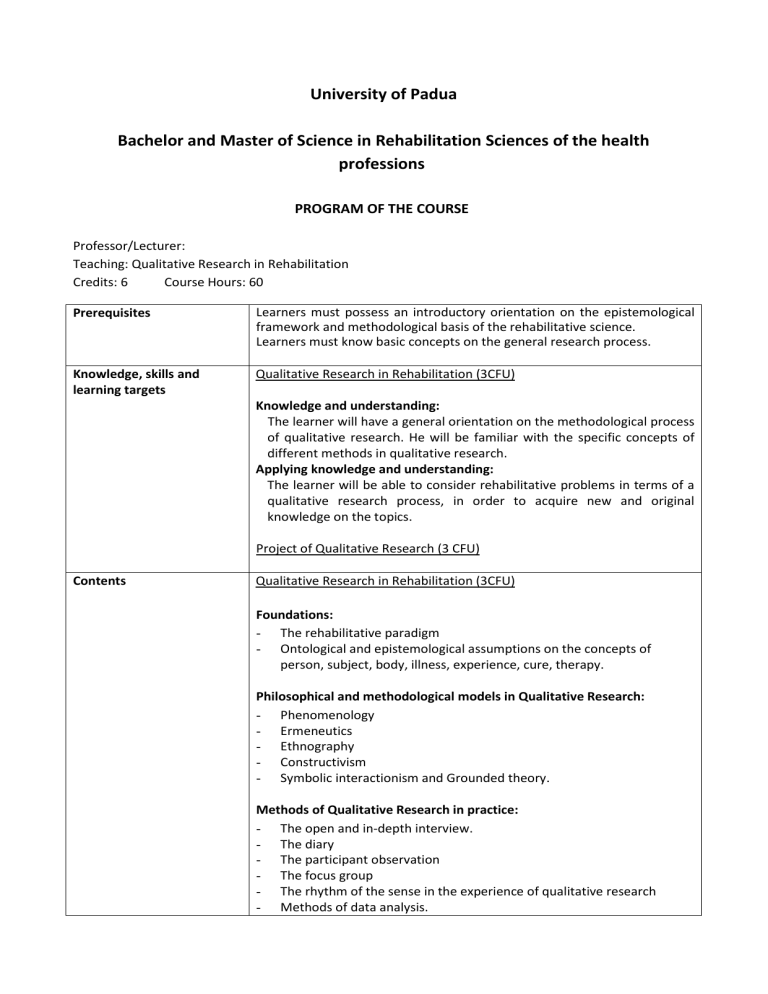
University of Padua
Bachelor and Master of Science in Rehabilitation Sciences of the health
professions
PROGRAM OF THE COURSE
Professor/Lecturer:
Teaching: Qualitative Research in Rehabilitation
Credits: 6
Course Hours: 60
Prerequisites
Learners must possess an introductory orientation on the epistemological
framework and methodological basis of the rehabilitative science.
Learners must know basic concepts on the general research process.
Knowledge, skills and
learning targets
Qualitative Research in Rehabilitation (3CFU)
Knowledge and understanding:
The learner will have a general orientation on the methodological process
of qualitative research. He will be familiar with the specific concepts of
different methods in qualitative research.
Applying knowledge and understanding:
The learner will be able to consider rehabilitative problems in terms of a
qualitative research process, in order to acquire new and original
knowledge on the topics.
Project of Qualitative Research (3 CFU)
Contents
Qualitative Research in Rehabilitation (3CFU)
Foundations:
- The rehabilitative paradigm
- Ontological and epistemological assumptions on the concepts of
person, subject, body, illness, experience, cure, therapy.
Philosophical and methodological models in Qualitative Research:
- Phenomenology
- Ermeneutics
- Ethnography
- Constructivism
- Symbolic interactionism and Grounded theory.
Methods of Qualitative Research in practice:
- The open and in-depth interview.
- The diary
- The participant observation
- The focus group
- The rhythm of the sense in the experience of qualitative research
- Methods of data analysis.
Project of Qualitative Research (3 CFU)
Learning activities provided
for and teaching
methodologies
The teaching methodology of the discipline is conduct in a reflexive and
dialogic manner.
Workshop:
- Autobiographical text or open interview as a source for develop an
inter-subjective process of analysis, aimed to acquire new insights on
an experiential topic.
References
Introduction to the Qualitative research methods:
Cambi F. 2002 L’autobiografia come metodo formativo. Laterza, Bari.
Cardano M 2003 Tecniche di ricerca qualitativa. Percorsi di ricerca nelle
scienze sociali. Carocci, Roma.
Demetrio D 1995 Raccontarsi. L’autobiografia come cura di sé. Raffaello
Cortina, Milano
Diana P, Montesperelli P 2005 Analizzare le interviste ermeneutiche.
Carocci, Roma.
Montesperelli P 2001 L’intervista ermeneutica. Franco Angeli, Milano, 2a
ed.
Mortari L. 2007 Cultura della ricerca e pedagogia. Prospettive
epistemologiche. Carocci, Roma.
Mortari L. 2003 Apprendere dall’esperienza. Il pensiero riflessivo nella
formazione. Carocci, Roma.
Sità C. 2012 Indagare l’esperienza. L’intervista fenomenologica nella ricerca
educativa. Carocci, Roma.
Tarozzi M. 2008 Che cos’è la Grounded Theory. Carocci, Roma.
Phylosophical foundations:
Fabietti U 1999 Antropologia culturale. L’esperienza e l’interpretazione.
Laterza, Bari.
Cappuccio M (a cura di) 2006 Neurofenomenologia. Bruno Mondadori,
Milano.
Ceruti M 2000 Il vincolo e la possibilità. Feltrinelli, Milano, 5a ed.
De Monticelli R 1998 La conoscenza personale. Introduzione alla
fenomenologia. Guerini, Milano.
De Monticelli R. 2003. L’ordine del cuore. Etica e teoria del sentire. Garzanti,
Milano.
Gadamer HG (1986) Wahrheit und Methode. Trad. it. Verità e metodo.
Bompiani, Milano, 2000.
Geertz C Interpretazione di culture. Il Mulino, Bologna.
Husserl E. La crisi delle scienze europee e la fenomenologia trascendentale.
Net, Milano, 2002.
Merleau-Ponty M 1945 Fenomenologia della percezione. Bompiani, Torino
2003.
Phenomenology and rehabilitation:
Migliorino N. (2010) Il gesto terapeutico. Forma e Contatto. Franco Angeli,
Milano.
Migliorino N. (2011) L’esperienza del gesto di cura: percorsi e intrecci nel
formarsi del corpo. Encyclopaideia XV (31), 91-101.
Assessment mode
The exam consists of the presentation of the workshop as a personal
process and as a production of new insights on the explored topic.
Evaluation Criteria for the
practical test
Interest of the chosen topic, quality of the organization and the
presentation mode, reflexive and creative thinking.

